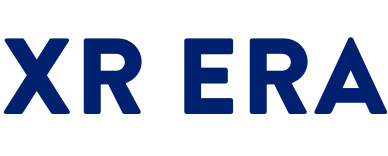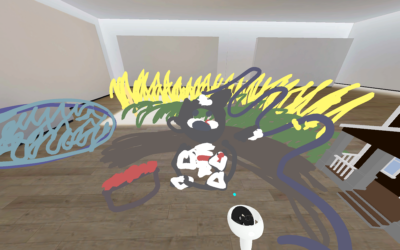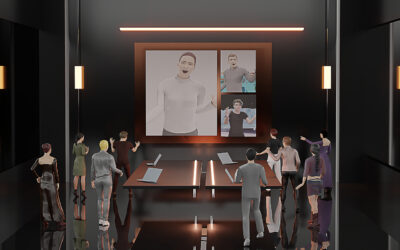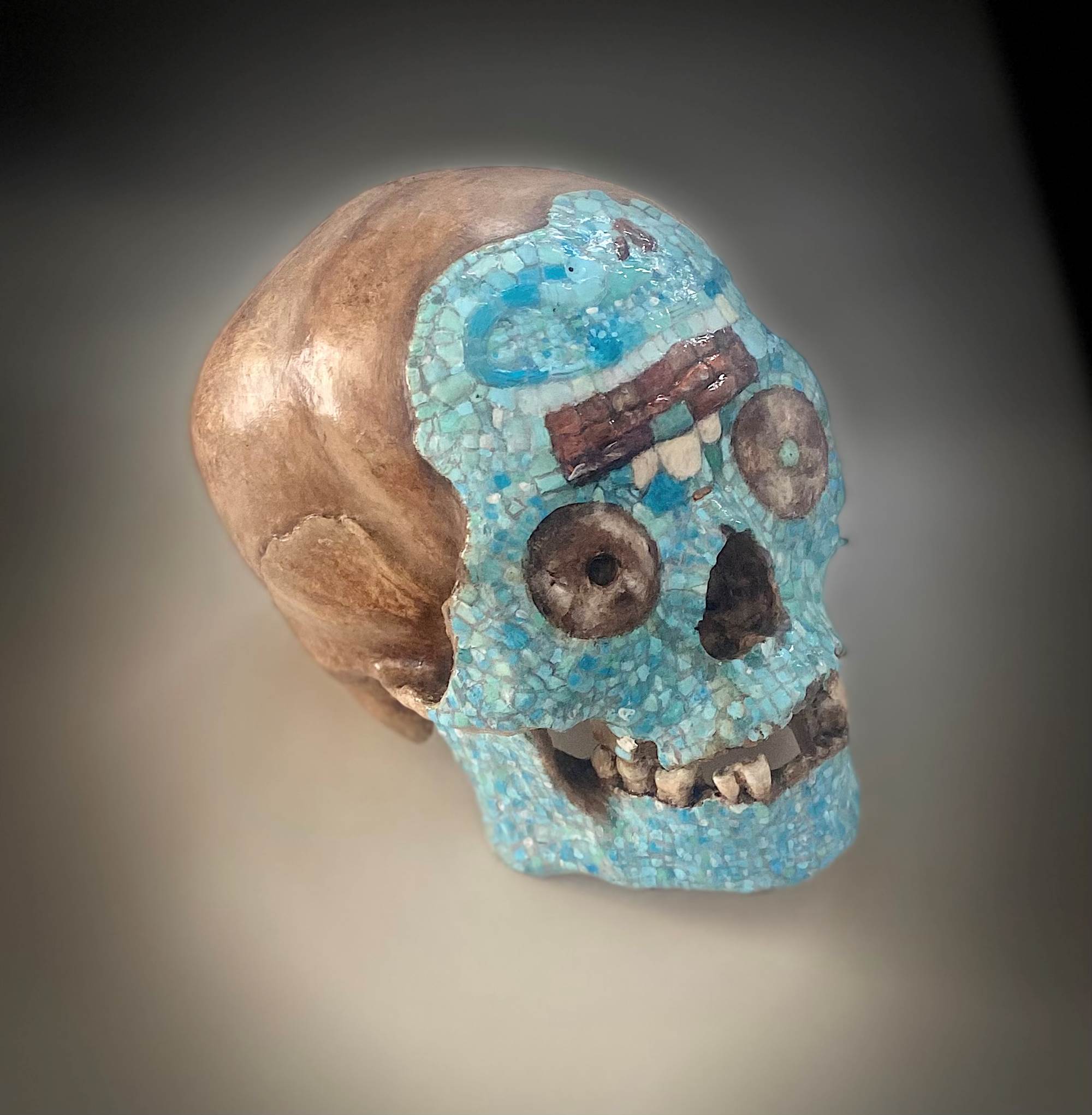Early May, one of XR ERA members’, Walter Gianuzzi initiated a group discussion to gather insights into what kind of information researchers, teachers, developers or others are looking for when working with XR and how they approach to find this information. Walter already shortly introduced the topic in our previous meetup and this get-together was a next step in a discussion on a shared XR knowledge resource.
Walter Giannuzzi is spearheading the session and the initiative to create a shared XR knowledge resource. He currently teaches XR, applied game design and web development courses within the Communication and Multimedia Design department at the Amsterdam University of Applied Sciences. Among other things his idea is to provide solutions for:
- A lack of knowledge sharing in the XR community;
- A lack of a central place for finding knowledge;
- Raising awareness for XR ethics, privacy, safety and security;
- The lack of the knowledge of responsible use and design of XR practice.
Different objectives, different needs
Participants were asked to think about what kind of role they have when working with XR and thus what kind of perspective they take when looking for information related to XR. For instance, teachers obviously need different information than developers. The different participants, who consisted of teachers, researchers and developers were then asked to map out these searches for information on post-its on a collaborative white board and show what kind of sources usually supply their information.
The session: Towards a shared XR knowledge resource
For starters, participants were asked to think about what kind of role they have when working with XR and thus what kind of perspective they take when looking for information related to XR. Teachers search for different kinds of information than developers might for instance. Participants were then asked to map out these searches for information on post-its in a Miro board and connect what kind of resource usually supplies this information if those existed at all. The Information was then evaluated by how difficult it usually is to find this information. After a short time, a group discussion was instigated to see what kind of information was hard or even impossible to find.
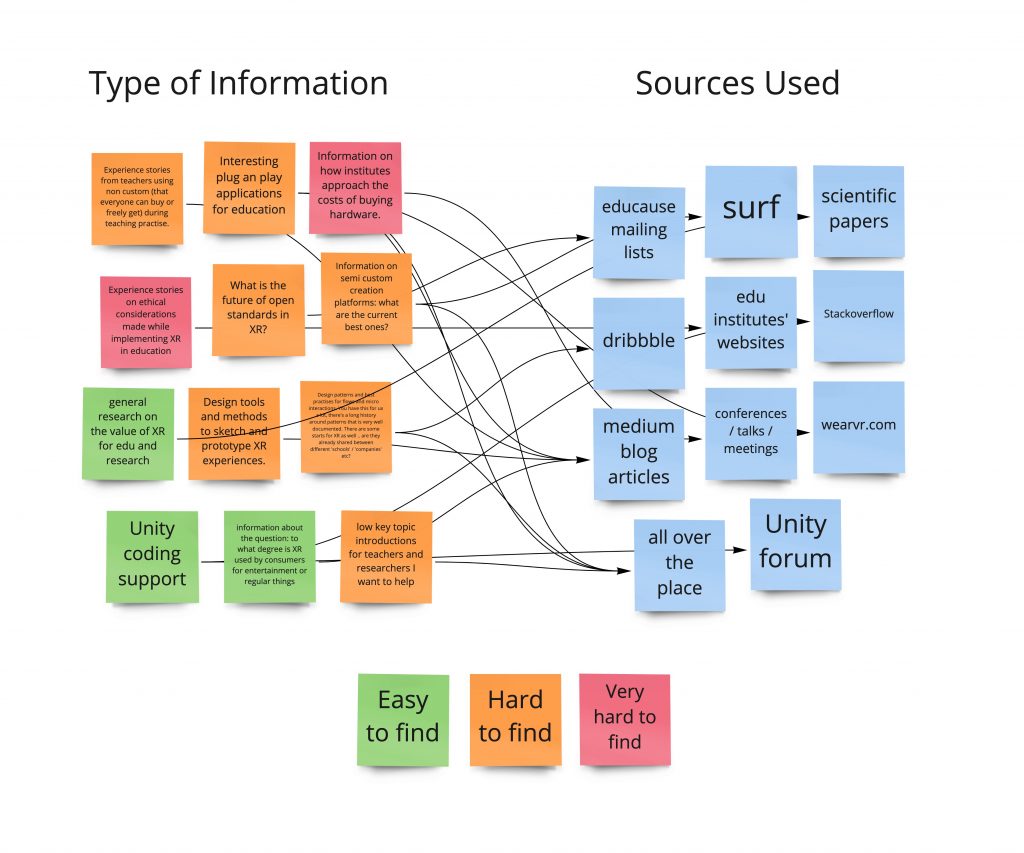
Example of one of the participants’ notes for the first part of the exercise
Through a group discussion we discussed findings and reviewed what kind of information is often hard or even impossible to find.
Finding a middle ground between shallow and highly detailed information
They came to interesting conclusions of missing information. One of the findings relates to an experienced lack of the right level of detail in resources available. Accessible and practical sources of assets, best practices, guidelines and starting point for collaboration are often hard to find. It is easy to find ‘shallow’ promo-videos of XR projects or highly detailed knowledge through academic papers research, but participants feel they are more often looking for a golden mean between these two extremes. A second outcome was the lack of a place to find actual case studies of XR applications for serious purposes, such as education. Educational institutes and software companies promote the work they are proud of, but often not much information is provided to really understand how XR experiences are used in context.
Conclusive thoughts point towards solutions that emphasises the sharing of relevant and practical information from beginner to relatively intermediate XR practitioners, the promotion of collaborative efforts in practical and educational contexts and the acquisition of best practices for user experience design and responsible XR. Last but not least, participants spoke out that ideally, resources can be easily embedded in – or at least related to real life situations.
We hope this exercise has inspired and informed Walter and other information providers in the XR ERA community to always remember to take into account level of detail, availability and accessibility adapted to the target audience, when working on resources around XR in the future within the projects. Would you like to know more about this topic or become involved? Don’t hesitate to get in touch.
We’re happy XR ERA’s members such as Walter himself, see the value of the community and are really putting collaboration into practise, by making use of the opportunity to get in touch with the community in such a concrete way. Would you like to take part next time, or intitiate a meetup as well? Find out how to join us.
